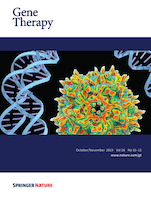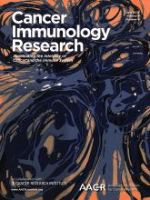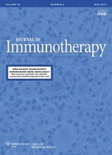
Journal for ImmunoTherapy of Cancer
Scope & Guideline
Your Gateway to Cutting-Edge Cancer Immunotherapy
Introduction
Aims and Scopes
- Immunotherapy Mechanisms:
Research exploring the biological mechanisms of immune responses to cancer therapies, including the role of immune checkpoints, T cell activation, and tumor microenvironment modulation. - Clinical Trials and Outcomes:
Publication of findings from clinical trials assessing the efficacy and safety of various immunotherapeutic agents, including monoclonal antibodies, CAR T cell therapies, and combination treatments. - Biomarker Development:
Studies aimed at identifying predictive and prognostic biomarkers that can guide treatment decisions and enhance patient outcomes in immunotherapy. - Innovative Therapeutic Approaches:
Exploration of novel immunotherapeutic strategies, such as oncolytic viruses, bispecific antibodies, and personalized vaccines, to improve anti-tumor efficacy. - Tumor Microenvironment Studies:
Research into the interactions between tumors and the immune system, focusing on how the tumor microenvironment influences immunotherapy responses and resistance. - Adverse Events and Management:
Investigating the immune-related adverse events associated with immunotherapy and developing strategies for their management and mitigation.
Trending and Emerging
- Combination Immunotherapy:
There is a growing interest in combination therapies that synergize different immunotherapeutic agents or combine immunotherapy with targeted therapies to enhance efficacy and overcome resistance. - Personalized Immunotherapy:
Research focused on the development of personalized treatment strategies, including neoantigen-based vaccines and tailored CAR T cell therapies, is gaining momentum. - Role of the Tumor Microenvironment:
Emerging studies are increasingly investigating how the tumor microenvironment influences immunotherapy responses, including the role of immune cell infiltration and metabolic reprogramming. - Adverse Event Management:
Increased attention is being paid to understanding and managing immune-related adverse events, with efforts to develop predictive biomarkers and treatment protocols. - Innovative Delivery Mechanisms:
Innovations in drug delivery systems, such as nanoparticles and oncolytic viruses, are being explored as methods to enhance the efficacy of immunotherapies. - AI and Machine Learning Applications:
The application of artificial intelligence and machine learning techniques to predict treatment outcomes and analyze complex immunological data is an emerging trend.
Declining or Waning
- Traditional Chemotherapy Approaches:
There is a noticeable decrease in emphasis on integrating traditional chemotherapy with immunotherapy, as the focus has shifted towards more novel and targeted immunotherapeutic agents. - Basic Immunology Studies:
Research purely focused on basic immunological mechanisms without direct clinical application appears to be waning, with a preference for studies that link basic science to therapeutic outcomes. - Single-Agent Therapies:
The trend towards combination therapies, particularly those integrating immunotherapy with other modalities, has overshadowed the exploration of single-agent therapies.
Similar Journals

Molecular Therapy Oncolytics
Transforming Cancer Care Through Innovative ResearchMolecular Therapy Oncolytics is an esteemed Open Access journal published by CELL PRESS, focusing on cutting-edge research in the fields of oncology, molecular medicine, and pharmacology. Established in 2014, the journal has quickly gained a prominent position in the academic community, reflected in its impressive Q1 and Q2 rankings across various categories including Cancer Research, Molecular Medicine, and Pharmacology. With an impactful presence in the UK and a strong international readership, it aims to disseminate significant advancements in therapeutic strategies targeted at cancer treatment and management. By providing a platform for peer-reviewed research, Molecular Therapy Oncolytics plays a critical role in bridging the gap between scientific innovation and clinical application, making it an invaluable resource for researchers, healthcare professionals, and students striving to contribute to the evolving landscape of oncology.

npj Breast Cancer
Elevating the discourse on breast cancer care and research.npj Breast Cancer, published by NATURE PORTFOLIO, stands at the forefront of breast cancer research as an esteemed open access journal since 2015. With its impressive trajectory, the journal has garnered a notable impact within the academic community, reflecting a Q1 ranking in prestigious categories such as Oncology, Pharmacology, and Radiology for 2023. Based in the United Kingdom and indexed under E-ISSN 2374-4677, npj Breast Cancer aims to disseminate cutting-edge research that fosters innovation in prevention, diagnosis, and treatment of breast cancer, thereby addressing one of the most pressing health issues of our time. Its placement within Scopus rankings, including a remarkable 19th position in Pharmacology and a percentile ranking in the 90th range for Radiology and Oncology, highlights its significance as a key resource for researchers, healthcare professionals, and policy-makers dedicated to advancing cancer care. Emphasizing accessibility and high-quality content, npj Breast Cancer provides an influential platform for interdisciplinary collaboration and discovery in the ongoing battle against breast cancer.

INTERNATIONAL JOURNAL OF ONCOLOGY
Transforming discoveries into impactful cancer solutions.INTERNATIONAL JOURNAL OF ONCOLOGY is a leading academic publication dedicated to advancing the field of cancer research and treatment. Published by SPANDIDOS PUBL LTD in Greece, this journal, with ISSN 1019-6439 and E-ISSN 1791-2423, has established itself as a reputable source of peer-reviewed articles since its inception in 1993. With an impressive Q2 ranking in both Cancer Research and Oncology categories, as well as high Scopus ranks reflecting its significant contribution to the fields of Medicine and Biochemistry, the journal offers a platform for researchers, clinicians, and students alike to disseminate their findings and engage in dialogue surrounding innovative practices and breakthroughs. Although the journal follows a traditional subscription model, it continues to attract a diverse readership interested in the latest developments in oncological research, providing essential insights into cancer biology, therapeutics, and patient care. With a commitment to excellence, the INTERNATIONAL JOURNAL OF ONCOLOGY plays a vital role in shaping the future of oncology research and is a must-read for anyone passionate about advancing cancer treatment and prevention.

GENE THERAPY
Advancing Gene Therapy for a Healthier TomorrowGENE THERAPY, published by SpringerNature, is a prestigious academic journal at the forefront of research in the fields of genetics, molecular biology, and molecular medicine. Since its inception in 1994, this journal has evolved into a vital resource for scholars, practitioners, and students, providing cutting-edge insights into gene therapy techniques and innovations. With an impressive impact factor reflecting its significant influence— ranking in the Q1 quartile across multiple categories in 2023—GENE THERAPY offers rigorous peer-reviewed articles that address both basic and applied aspects of gene therapy. The journal is recognized for its role in promoting advancements in therapeutic strategies, thus enhancing understanding of genetic disorders and treatment efficacy. Researchers will find this journal invaluable for publishing their findings, staying updated on the latest breakthroughs, and fostering interdisciplinary collaborations. Engage with the latest in gene therapy by accessing this influential platform, and contribute to a field that holds the potential to transform healthcare outcomes worldwide.

BIOCHIMICA ET BIOPHYSICA ACTA-REVIEWS ON CANCER
Exploring Innovative Therapeutic StrategiesBIOCHIMICA ET BIOPHYSICA ACTA-REVIEWS ON CANCER, published by Elsevier, has established itself as a leading journal in the domains of cancer research, genetics, and oncology, holding a prestigious position in the Q1 quartile rankings in these fields as of 2023. With an ISSN of 0304-419X and an E-ISSN of 1879-2561, this journal aims to disseminate high-quality, impactful reviews that synthesize the latest advancements and findings in cancer biology, treatment modalities, and genomic studies. Its robust indexing and remarkable Scopus rankings—placing it in the 95th to 91st percentiles across various categories—underline its significance for researchers, clinicians, and students passionate about oncology. Operating from its Netherlands headquarters, BIOCHIMICA ET BIOPHYSICA ACTA-REVIEWS ON CANCER is dedicated to fostering a comprehensive understanding of the complex biological mechanisms underlying cancer, promoting innovative therapeutic strategies, and guiding future research directions.

ImmunoTargets and Therapy
Pioneering Discoveries in ImmunotherapyImmunoTargets and Therapy is a leading open access journal published by DOVE MEDICAL PRESS LTD, dedicated to advancing the field of immunology and its various therapeutic applications. Since its inception in 2012, the journal has rapidly become a vital resource for researchers, professionals, and students, achieving notable recognition with a Q1 ranking in both Immunology and Immunology and Allergy categories as of 2023. With an impressive Scopus ranking of #22 out of 233 in Medicine - Immunology and Allergy, and #25 out of 236 in Immunology and Microbiology, this journal maintains a 90th percentile standing in its field. ImmunoTargets and Therapy not only publishes original research articles, reviews, and clinical studies, but also fosters an inclusive platform for the dissemination of innovative findings critical to the fight against immunological disorders. Based in New Zealand, it serves a global audience, promoting knowledge exchange and collaboration through its open access model.

Immunotherapy Advances
Illuminating the path to next-generation immunotherapeutic techniques.Immunotherapy Advances, published by Oxford University Press, stands at the forefront of the rapidly evolving field of immunology and microbe interactions, focusing specifically on novel immunotherapeutic strategies and their clinical applications. Established in 2021, this peer-reviewed journal aims to disseminate high-quality research that contributes to the understanding and advancement of immunotherapeutic techniques, potentially transforming patient care in immunology. With a current Scopus rank of #140 out of 236 in the realm of Immunology, placing it in the 40th percentile, Immunotherapy Advances is positioned to be an integral resource for researchers, healthcare professionals, and students eager to stay updated with groundbreaking findings and methodologies. The journal is dedicated to fostering innovative discussions and collaborations, ensuring open access to vital research that influences treatment paradigms globally.

Targeted Oncology
Transforming oncology with cutting-edge therapies.Targeted Oncology is a premier, peer-reviewed journal published by SPRINGER, focusing on the latest advancements in the field of oncology, specifically targeting the development and application of targeted therapies. Since its inception in 2006, this journal has become an essential resource for researchers, healthcare professionals, and students, providing critical insights into innovative cancer treatments and the pharmacological landscape. Recognized for its impactful contributions, Targeted Oncology holds a distinguished Q1 ranking in both Oncology and Pharmacology categories as of 2023, underscoring its influence and relevance in the scientific community. With an impressive Scopus ranking reflecting its strong citation impact, the journal not only disseminates high-quality research but also facilitates knowledge exchange among oncologists and researchers working towards improving patient outcomes. Although not an Open Access journal, Targeted Oncology is committed to advancing cancer research and therapeutic strategies, making it an invaluable addition to the libraries of any institution dedicated to health and wellness.

Cancer Immunology Research
Unraveling the Immune Response in CancerCancer Immunology Research is a leading journal dedicated to the rapidly evolving field of cancer immunology, published by the American Association for Cancer Research. Established in 2013, this prestigious journal has quickly made a significant impact in its domain, achieving a 2023 Q1 ranking in both Cancer Research and Immunology. With an impressive Scopus rank of 24 out of 230 in cancer research and 28 out of 236 in immunology, it occupies a valuable position for researchers, professionals, and students engaged in cutting-edge cancer studies. Although it does not offer open access, the journal is committed to disseminating high-quality, peer-reviewed research that advances our understanding of the immune system’s role in cancer. The journal's objectives include fostering innovative studies, enhancing collaboration across disciplines, and promoting the translation of research findings into clinical applications, making it a vital resource for anyone invested in cancer therapy and immunological research.

JOURNAL OF IMMUNOTHERAPY
Uniting Knowledge and Innovation in ImmunotherapyJOURNAL OF IMMUNOTHERAPY, published by Lippincott Williams & Wilkins, is a premier journal dedicated to advancing the field of immunotherapy, a vital aspect of contemporary cancer research and treatment. With an ISSN of 1524-9557 and an E-ISSN of 1537-4513, this esteemed journal has been disseminating cutting-edge research since 1991 and continues to thrive with a convergence of knowledge leading into 2024. Recognized in the top Q2 quartile for fields such as Cancer Research, Immunology, and Allergy, as well as achieving a Q1 ranking in Pharmacology, the journal serves as a critical resource for researchers, clinicians, and students alike. Its robust impact is reflected in its competitive Scopus rankings across various categories, where it holds significant percentile standings. Highly regarded in the academic community for its rigor, the JOURNAL OF IMMUNOTHERAPY aims to provide a platform for innovative ideas, clinical findings, and experimental research that propels the science of immunotherapy forward. Although it does not offer open access, the journal ensures that its contents remain accessible and impactful for professionals in the field, fostering collaboration and knowledge exchange in an era where immunotherapy holds the promise for breakthroughs in patient care.